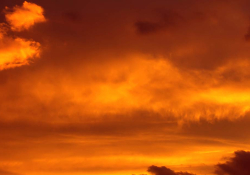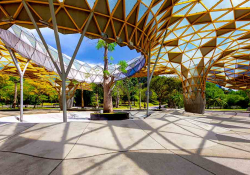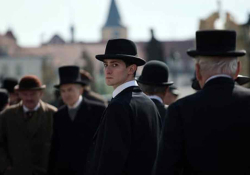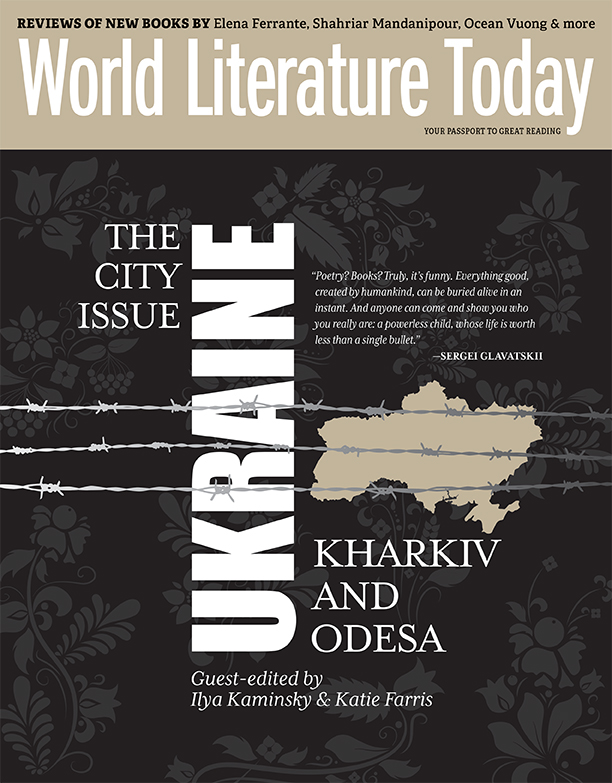Odesa
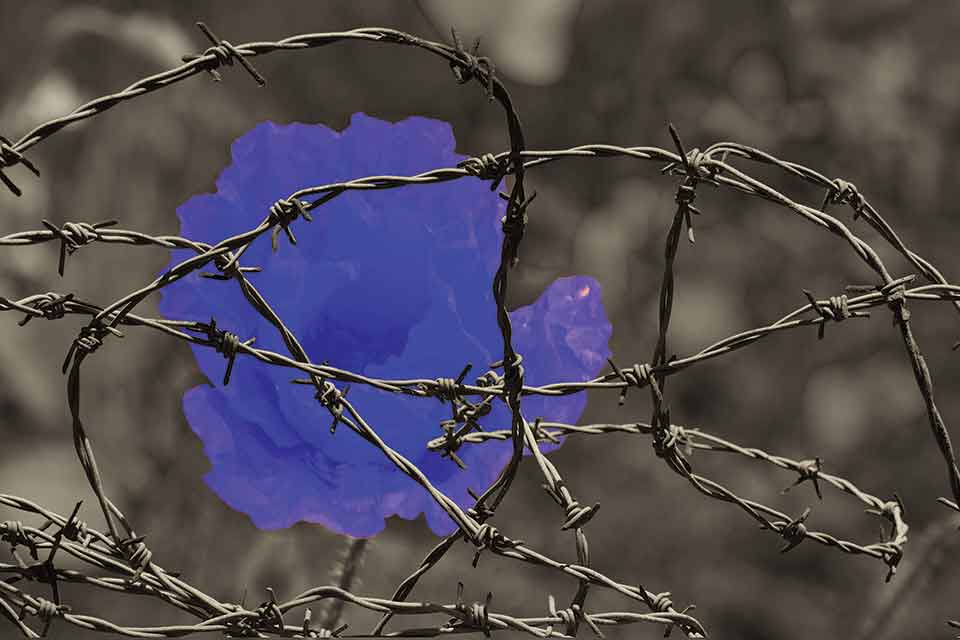
Evgeny Golubovsky
Today, April 3, a new chapter of this war began in Odesa.
For nearly forty days we have been telling the world that all is calm in Odesa. We convinced others, and ourselves, that the enemy wouldn’t dare destroy the beauty of this European city, acclaimed for its poets and writers.
Once again we were romantics, while our enemies are pragmatists.
At five a.m. on the 3rd of April, I am awoken by explosions. Loud ones. Meaning they’re close. Missiles destroying my city. To the Russians, missiles destroy “infrastructure.”
The city clings to us: we have to protect it like a child. A writer does this with words. There have always been a lot of songs about Odesa, yes, but during these forty days of war, we are making new words, new music, new tonalities.
Time itself has become heavy for me in the days of war. A year ago, I wouldn’t even notice how March flew by. But this year I write a daily journal, from the first day of this war, and every day since: each day a milestone. Each is adorned with events—some heroic, some ironic, but always human. I am watching how people take this war as their own personal grief, and they unite to stop aggression.
Understand this: During the war we live in the now, in this moment. For today. For this very instant. But to console ourselves, and others, we seek history. For example, I go back to remembering the defense of Odesa in 1941 during the Second World War. I learn to not give in to panic and to love life: during the war I daily seek comfort in classical music, in poetry.
“The city clings to us: we have to protect it like a child. A writer does this with words.”—Evgeny Golubovsky
Elena Andreichikova
Lady, where are you going? on the Moldovan–Ukrainian border, a customs official with rounded eyes shouts, although the answer is obvious.
—Home.
At the beginning of March I am escaping with my son and mother from Odesa; we make it to Istanbul. A convoy of eight refugee cars—women, children, dogs, cats, toys. One of them stops in Bulgaria, others head for Austria, Germany, Montenegro. No one has requested asylum yet; all dream of returning home as soon as they can.
But as of a week ago I am back Odesa, where my husband stays behind, along with my brother, his brother, many friends. I cross the border on foot. I will never forget the feeling: a gentle spring sun is shining; against my back, a wind that gives me courage and confidence, and I smile to no one in particular, because the border is empty: everyone who wanted to, left, and they aren’t rushing to return just yet.
And it seems that everything is as it was before. In honor of my return, people are gathering in my house, only men, some in uniform. The Privoz food market is working, bringing joy to Odesans with its many fresh fruits and vegetables, and prices that have barely risen. In the market, it’s the same jokes and wisecracks.
Even the enemy warships don’t get in the way of laughter in this city. Meat prepared over an open fire, pickles, sauerkraut, and someone even brought a little moonshine. A noisy evening, many embraces and lots of smiles. It would seem that nothing’s changed.
But everything’s changed.
The depth and range of feelings have changed.
Every piece of good news is a desperate happiness. Every tragic story is a horrific grief for all of us. Every embrace we give each other is long, protracted.
And suddenly, a joke—prolonged laughter, dragging out the joy, exhaling the exhausting tension.
We remember our grandmothers and grandfathers, their tales of the Second World War, which in our childhood seemed like exaggerated horror stories. Now we have become people that will tell these horror stories to our grandchildren: stories that are impossible to believe. I hope that our grandchildren won’t be able to believe them either.
The air-raid siren makes all our conversations stop. Existential fixation—yes, dear life, we remember, that it’s not all so simple! For a few seconds. And again, loud conversations. We are so hungry to live, despite it all!

Oleg Suslov
Bombings and missile strikes, multiple rocket launchers and the use of banned weapons, destruction of peaceful cities, roads, bridges, factories, millions of people’s forceful displacement, and death, death, death . . . All this begins on February 24.
At first, we count the hours—how many hours has the war gone on.
Now the unit of measurement is days.
It’s hard to recall what day of the week it is.
Odesa still remains—knock on wood—relatively free of active combat. We’ve long become used to air-raid sirens. Though on an early Sunday morning: a missile destroys an oil refinery. The whole of Odesa shudders from the blast wave. The other day, I took a walk around Deribasovskaya Street, which is full of antitank constructions and wrapped in barbed wire. The monuments are up to their necks in sandbags. And it’s terrifyingly silent.
Sergei Glavatskii
A person—like a rat—acclimates to everything. While he’s alive. While not yet at the boiling point.
It’s possible to get acclimated to everything: to the fact that there’s no good news, to separation from those I love, to destroyed cities, to an unthinkable tsunami of hate, which for a poet—whether the hate is internal or external—is the end. It’s possible to get used to hearing—but not listening to—the endless air-raid sirens.
A completely new feeling for me is missing my son. He is still young, we haven’t yet been able to have a heart-to-heart conversation, and then—and now he’s escaped to Europe, while I am in Ukraine.
An all-consuming feeling: How is my child doing? Is everything okay? I must convince myself constantly that he’s okay. Will we see each other again? A person in Ukraine is especially and suddenly mortal.
Poetry? Books? Truly, it’s funny. Everything good, created by humankind, can be buried alive in an instant.
And anyone can come and show you who you really are: a powerless child, whose life is worth less than a single bullet.
“Everything good, created by humankind, can be buried alive in an instant.”—Sergei Glavatskii
Maria Sternenko
It is our belief that life won’t end today.
I want to think of what will happen after the war: the Black Sea, with its squadrons of gulls atop the waves. How peaceful the acacia trees on seafront hills will seem. How dear the faces of vendors at Privoz bazaar, faces of tram drivers, will become. Wishes of “good night” and “good morning” will acquire, anew, sacred meanings.
Each minute of a day without war will hold real value. What will it be? We have to find out.
Oleg Vladimirsky
The war completely erased my entire previous life. All my accomplishments and successes became meaningless, along with all the plans I’d been building. Life has to be built anew, within the insane conditions of war.
Just think of this: the small, once charming, green town of Bucha near Kyiv is now probably known in many different corners of the world. People know of it, because they saw the photos of today’s Bucha—the terrifying, inhumane, incomprehensible photos.

Dora Dukova
I’m crying as I write this. And I can’t stop these tears. Because every bullet fired into my people is a hole in my chest. There’s pretty much no breastbone left.
Today, all of us are volunteers.
Semyon Abramovich
It’s now the second month of war: these days changed the world around us and the world inside us. This period has gradually acquired the traits of military time.
The city is bristling with tank traps. Curfew has entered our city, a wartime regime.
War enters my life and becomes a reality. The daily air-raid sirens, the sounds of air-defense systems working, the deafening explosions of missiles . . . life is divided in half, into two parts: before and after.
Absolutely everything changes: the mentality, feelings of empathy, compassion. War is a time of soul-searching. You start to understand with whom you would go into battle, and with whom you wouldn’t. In literature, new shades of spiritual perfection or imperfection of people are being presented. The masks are thrown off: sincerity shows through more clearly.
Eugene Demenok
Although I live in Prague, I consider myself an Odesan writer. The most important thing in my life right now is volunteering, helping Ukrainian refugees—there are now three hundred thousand refugees from Ukraine in the Czech Republic. I switch between shifts at the train station and the integration center, where refugees file their documents. I speak to hundreds of people from all over Ukraine. The refugees need help orienting themselves, finding where to live, work. Many have escaped with nothing. Many of them find themselves abroad for the first time in their lives.
In the first weeks after the start of the war, I couldn’t write at all. Now, most of what I write is reportage about the refugees.
Time is both compressed and stretched out: every day is like being on a “seesaw” of emotion—from “Everything is going to be okay, and we will definitely win” to “World War Three will start tomorrow with a nuclear explosion.”
The refugees keep arriving. I keep lining up together with other volunteers, to meet them at the train station. In a month, the Czech Republic’s population of ten million grew by 3 percent.
Anastasia Zinevich
We left Odesa on the second day of the war.
On the first day, we heard two explosions—one in the morning (that was the airport, into which the submarine had fired its missiles) and one during the day, near us (the Shkolniy airfield). On the first day, we rushed to buy canned food.
We decided to call the Israeli consulate in Lviv on the second day.
All the other consulates had evacuated.
I hang on the phone for a couple of hours, and finally they answer: “We’ll be working until the last call tonight. You can try to come tomorrow, and if we don’t evacuate, we’ll see you, despite the Sabbath.”
Our wavering lasted another hour: on the pans of the scale, on one side, were my fellow companion Ilya’s age (eighty-four years old), ailments, weakness, legs, the fragility of his bones (one fall will result in multiple fractures), on the other—a necessity for urgent oncological treatment, which in Odesa might be delayed for an indeterminate period. Our attending physicians started leaving the city, and medication is in deficit at the pharmacies. This means that staying might prove to be fatally dangerous.
A situation identical to 1941, when the last evacuating ship was leaving the Odesa port. Ilya’s uncle came for him and his mother back then, stuffed tickets into their hands, and dragged them away. Ilya remembers how they sat in the bomb shelter, remembers the explosions, his mother at a loss for what to do because tickets were impossible to come by. Ilya’s father had recently been drafted into the army, right on the street as he was on his way home from work. There would have been nobody to care for them if not for the uncle. . . . All their relatives, who were indecisive—“but how will I leave our paintings,” “but the Germans and Romanians are supposed to be cultured people”—were killed.
And so I sit among piles of stuff and frantically try to decide what to take.
The thought of “what if this is forever” is entirely paralyzing.
Perhaps one needs to trick oneself into thinking that one isn’t fleeing, just packing for a short trip. No, better to forget about the future altogether. Think only about now. There, just yesterday I bought crackers and lard. Packing them. Here, documents, a sweater, socks, underwear. Then . . .
The friend who drove through a darkened Odesa to the train station where we would get on the Odesa–Lviv train said: “As few things as possible, you don’t know what might happen, how you’ll be crossing the border. A fighter needs a gun, bullets, wafers, and water. That’s it. Everything else is dead weight.” We listened to him. We did not regret it later, crossing the border into Poland on foot, following the fleeing Israeli consular officers.

“I sit among piles of stuff and frantically try to decide what to take.”—Anastasia Zinevich
Victoriya Koritnyanskaya
What has changed about my everyday life now after the start of war? I’ve finally completed an article about Odesan artists. . . . I’m joking.
But if I’m being serious?
It’s the tension, the same anticipation and anxiousness exhaust the soul. . . . You live in anticipation of the end of this war. . . . You follow the news, you wonder, you think, think. . . . You can’t let go of this war. . . . Or the war isn’t letting go of you? Even though Odesa is in a state of relative calm, and you can do the things inaccessible to many Ukrainians. . . . For instance, you’re craving something sweet, so you buy yourself a cake. . . . “The people of Mariupol can’t do that!”—someone inside of you immediately whispers. . . . You admire the flowers. . . . “Your relatives who fled from Kharkiv, that’s the last thing on their minds right now. . . .” On a walk, you bask in the sun. . . . “Many will never get to see it again!” . . . And it’s like this all the time! All the time you tell yourself to snap out of it, to keep it in, you feel guilty. . . .
Yesterday, while speaking to my parents, I heard my mom say: “They are not going to bomb Odesa! The threat has passed, everything will be okay, you’ll see!” I’d like to have at least a drop of her assuredness. . . . Yes, Odesa is not under fire, but Odesans are being tortured with expectation. . . . Every other day the seesaw tips: Russian ships arrive at the port, then they leave, then they come again, but now with their ammunition reloaded. . . . “The likelihood of bombing in Odesa is very high!” reads my husband aloud. “Odesa’s air defense will not allow them to!” some government official states in an interview. Then they bomb the oil refinery in the city. But I also see how people have “come alive,” more automobiles are on the road, and the closed cafés and shops are reopening. . . . Or, perhaps, this isn’t us “coming alive” and we’re just used to this war now?
All thirty-seven days of this war, I have been listening to the voice within me: I am happy that there is no hatred toward Russian soldiers in my heart. There’s deep contempt, disgust, a sense of loathing and . . . surprise. I am still surprised and can’t fathom how it is possible to be so despicable, dishonorable, cruel, inhumane . . .
When I sit in the hallway during air-raid alerts, I feel like time has stopped around me. . . . But later . . . it’s hard to explain. . . . It’s almost like time is both hurtling forward and standing still, as if frozen in place. Because, on one hand, it has been over a month since the first bombs fell on Ukraine; on the other . . . So much has happened already, so much has been lived through, thought over . . . is it even possible for all of it to fit into thirty-seven days?
But I started writing more now: I may be trying to escape reality this way.
“It’s almost like time is both hurtling forward and standing still, as if frozen in place.” —Victoriya Koritnyanskaya
Viktor Korobko
I’ve seen today a ten-kilometer queue in Palanca and approximately five hundred to six hundred people that were walking on foot. Mamas with kids, and it’s snowing and some kids are crying, others have serious men’s eyes.
On May 6, a few days before her eighty-first birthday, my mother departs for Moldova, my wife and kids are now in Bucharest. My elder brother stays in Odesa: air strikes, blasts, refugees from places destroyed by our “liberators”—all this is daily life.
In Soviet days, my boxing “career” provided a lesson: “fighting is not only hitting the enemy but taking the hit. Your strength is measured by your ability to take a hit.”
Yes, we are all different: some of us lost a friend or pal or schoolmate in this war already, some of us lost a job, the means of existence. Some of us start drinking, some steal, some volunteer, give, donate. Some are fighting on the battlefield.
But all of us are here in the ring against a heavier and merciless enemy: the only way we can win is to get the aggressor exhausted as we continue moving faster.

Ella Leus
My ears suddenly turned into stethoscope tubes: each second I tune to the sounds of the city streets, the yard, the house. A neighbor manages to do construction (which also suddenly inspires me!), but the drill sounds like the automatic burst of bullets. They drop a stool upstairs and I shudder, taking it for an explosion.
The metal carousel on the children’s playground shrills—there is some malfunction in it. But the children at play don’t yell anymore (I miss the sound of their delighted howls), they listen along with me.
We learned to discern between the work of the antiaircraft warfare and the enemy’s drones; we learned to fear the wailing of the wind in the doorways, akin to the voice of the air-raid siren.
Such is the wartime silence. And I also listen to poetry: new wartime poems of poets, their incandescent words are precise like a shot in the temple.
In wartime: terrified time squeezes into cracks between air-raid sirens. It cannot be squandered; it must be preserved.
We preserve time in the phone call with a friend who’s escaped or in the evening chat with a neighbor. We preserve time in the spoonful of soup, prepared for relatives, in the small gift for a child (in peacetime, we’ll buy better gifts), in the handful of cat food. We also save time in written and unwritten lines, stanzas, chapters . . . oh, to have time . . .
My novel-in-progress, my long, incomplete novel, The Drifting Arcs, now returns to me and slowly: shapeshifting. Meanwhile, I hope and I pray. Because there are no atheists in war, after all. Shield and protect us, Lord.
“I also listen to poetry: new wartime poems of poets, their incandescent words are precise like a shot in the temple.” —Ella Leus
Marina Linda
Before the war, 80 percent of me was sustained by poetry, prose, music, teaching young writers in school—these were the primary focus of my attention. And everything else remained on the periphery.
The war mixed it all up, like cards in a stack. With the first explosion outside the window: I was already 80 percent mother. I grabbed the youngsters and dragged them to safety. At first we left town. And since the eleventh day of the war, we live in Moldova with the children. Here I feel myself to be more often a mother not only to my own but to other children from Ukraine who find their way here.
I work as a volunteer in a day camp for refugee children. We have a rule at the children’s camp—do not talk about war or politics with children. It is a good rule. But it is absolutely impossible to follow. How can you not speak of the war with the children who were pierced by it? With the children who were deprived of everything, deprived of their smiles, children forced to grow up?
A boy, Danny, seven years old, grabs my hand on the walk and tells me how he misses his dad, whom he has not seen in three weeks:
“I’ve never parted with my dad for this long. I can’t be without him so long.”
“Everything will be okay, Danny. We all miss our families, but soon we will certainly see them again.”
Do not talk about war, I remind myself.
Polina, eight years old, crafts a paper plane, shading it with blue and yellow colors:
“And if we have many many planes? They can close the skies over Ukraine?”
“Everything will be okay, Polina. Very soon our skies and soil will be safe.”
Do not talk about the war, I repeat to myself.
A girl named Lisa, thirteen years old, appears like a metal structure for the three weeks of camp. Her body is rigid, eyes—inevitably red from tears. Lisa barely speaks. One perpetually wishes to hug and hold her, but she refuses.
During one of the lessons, I suggested the older group of children should daydream on the theme of magic superpowers and write little poems about it. After the texts were written, they were sharing their work, and I noticed for the first time Lisa smiling. I saw it and almost burst into tears.
Lisa wrote about wearing wings on her shoulders, flying to her home, and first—taking her father, and then all the good people—and together they’ll create a shield of light over our country. And the war will end.
Anna Streminskaya
It’s the second month of the war: I experience a particular sense of adaptation. If at first came shock and the desire to wake yourself from a dreadful nightmare, now comes the awareness that waking up is not in the cards, and one must come to terms with this reality.
At first there were panic attacks and tears and nervous breakdowns.
Now it’s a larger awareness of an emotional sustainability and the sense that I, like steel, have become tempered, and something in me became stronger.
Humans are pliable beings and can become accustomed to a lot. Although it is difficult to get used to the abundance of antitank hedgehogs on the blooming and once-lively streets. What helps me now is the fact that we again are going to work, although my workplace, the Museum of Literature, is closed to visitors.
Even going to work three times a week—this gives one a sense of a peaceful life. We mostly occupy ourselves by writing inventory cards for our exhibits and literary essays for the museum website.
It’s eerie at times to walk in the city center from the Opera House to the museum. There’s always block posts and utter emptiness, with only the occasional soldier or a group. (But in the time of peace, this is the most dynamic place in the city.)
Recently, I took my phone in hand to call a poet friend of mine from Nikolayev, Nadia Agafonova, but then I stumbled onto Facebook to find out that she had perished two days ago from a rocket attack on the Nikolayev Regional State Administration building. Such is the daily news.
As for literature—it seems these days that language, the word itself, has become a weapon. I am okay with that, and perhaps it is the best solution for me: because I could never hold an actual gun in my hands, my fingers could never pull the trigger.

“Language, the word itself, has become a weapon.” —Anna Streminskaya
Lyudmila Sharga
Odesa goes on living and smiling, even through tears, even filled with the antitank devices that now bare their teeth over our streets and bridges—the antitank devices are everywhere Odesans usually take strolls. We keep walking the streets; fortified buildings and monuments are all wrapped up in sandbags carefully hidden from the “liberators.”
Transportation still runs in the city, utility services, banks, pharmacies, markets, grocery stores all run . . .
The city takes on refugees from other cities and villages of Ukraine, each day the train station sends thousands of people via evacuation trains.
An almost peaceful life. But in this “almost” hides an abyss of grief that has swallowed Ukraine.
My life, too, has almost been left unchanged. Almost. I am uneasy speaking about my hope for regular sleep—thousands of people are left without sleep today, left without shelter . . . left without life.
Of course, when I am writing—it’s about the war: how to overcome the loss of tranquility, the loss of friends; of the monstrous, persistent, and brutal daytime of evil.
How bitterly one listens to those who support the war, support crimes committed against Ukrainians. Bitterly, one begins to see transparently through people, see what truly lies inside. No one will be able to sit through it in silence. And to appear as though nothing is happening.
This silence will be written about, too.
One realizes today that time is a relative construct. And highly subjective. “Happy people do not keep time . . .” said a classic. But we do keep it. The count began on February 24, 2022. It disrupted the normal course of time. Although it all began much sooner. I live now the way many do: from the signal of the air raid—until lights out. From one report from the front until the next. This is how I measure time now.
Translated by Yohanca Delgado, Katie Farris, Ilya Kaminsky, Marina Palenyy, NS, Stacey Streshinsky, and Paul S. Ukrainets






















